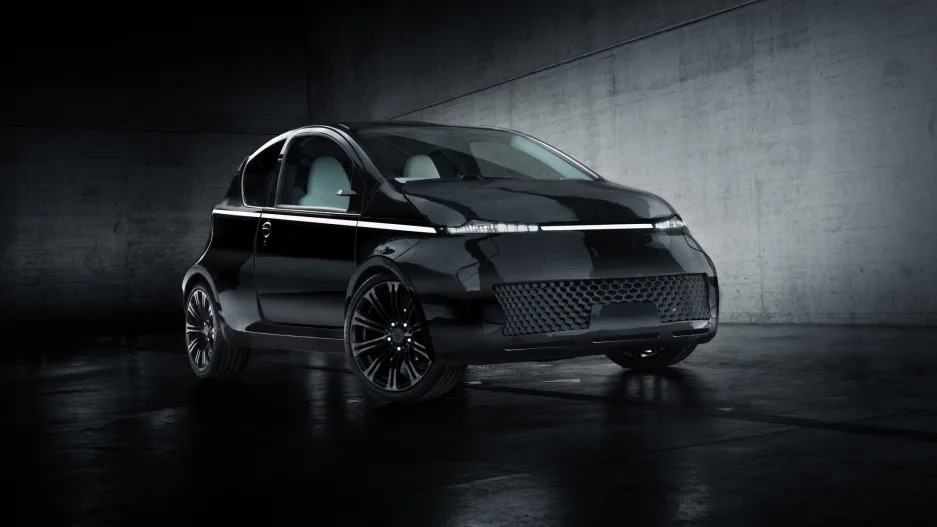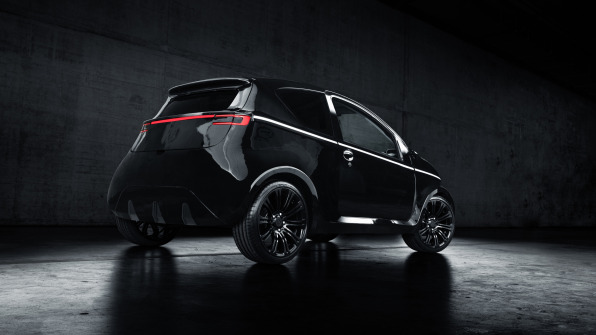- | 8:00 am
This low-cost EV comes with extra batteries that plug into a regular outlet
For apartment dwellers and others who can’t charge an electric car at home, this Swiss EV is designed to ease range anxiety.

To charge this new electric car from a Swiss startup, you don’t necessarily need to find an EV charger: The car comes with four extra batteries in the trunk that can plug into a regular outlet and give you an added boost of power.
Tera’s EV can more than cover a typical commute of roughly 30 miles each way, but that assumes someone owns a house and can plug in the car each night to fully charge the battery.

“While EV battery range has improved significantly, we noticed a critical gap in the market,” says cofounder Yoann Loetscher. For people who live in an apartment, or otherwise don’t have the option of easily charging their car when it’s idle, the company’s portable range extenders make it possible to charge anywhere, he says.

“Imagine you’re at the gym, and the EV charger is occupied,” says cofounder Luca Placi. “In this scenario, you can easily take one or more range extenders with you, charge them while you work out, and return to your car with enough range to complete your journey.” Each small battery weighs about 20 pounds and takes about five hours to charge fully while plugged into a regular outlet; but it’s possible to get enough charge for a short drive home more quickly.

When the extra batteries sit in the trunk of the car, called the MiracleONE, they also charge when you use a regular EV charger. The main battery has around 130 miles of range on its own, and each smaller battery adds around 12 miles, for a total of up to 180 miles. The car displays the energy level of each battery.
After building two drivable prototypes, the early-stage startup now plans to begin a small production run in Switzerland of the MiracleONE later this year. Its second model, MiracleTWO, is planned for a 2024 launch in European car dealerships. Tera designed the car to keep the cost low, starting at around $25,000.
Correction: The car’s total range is up to 290 kilometers, or 180 miles.







































